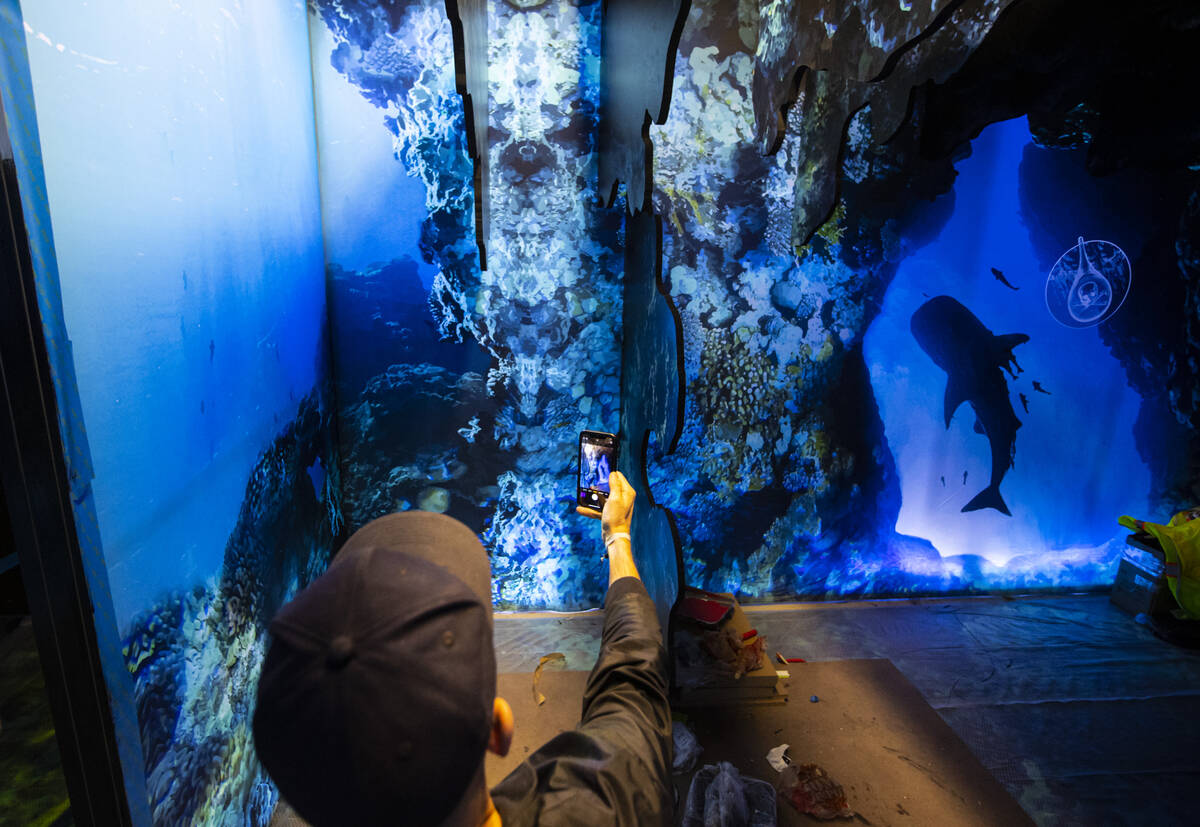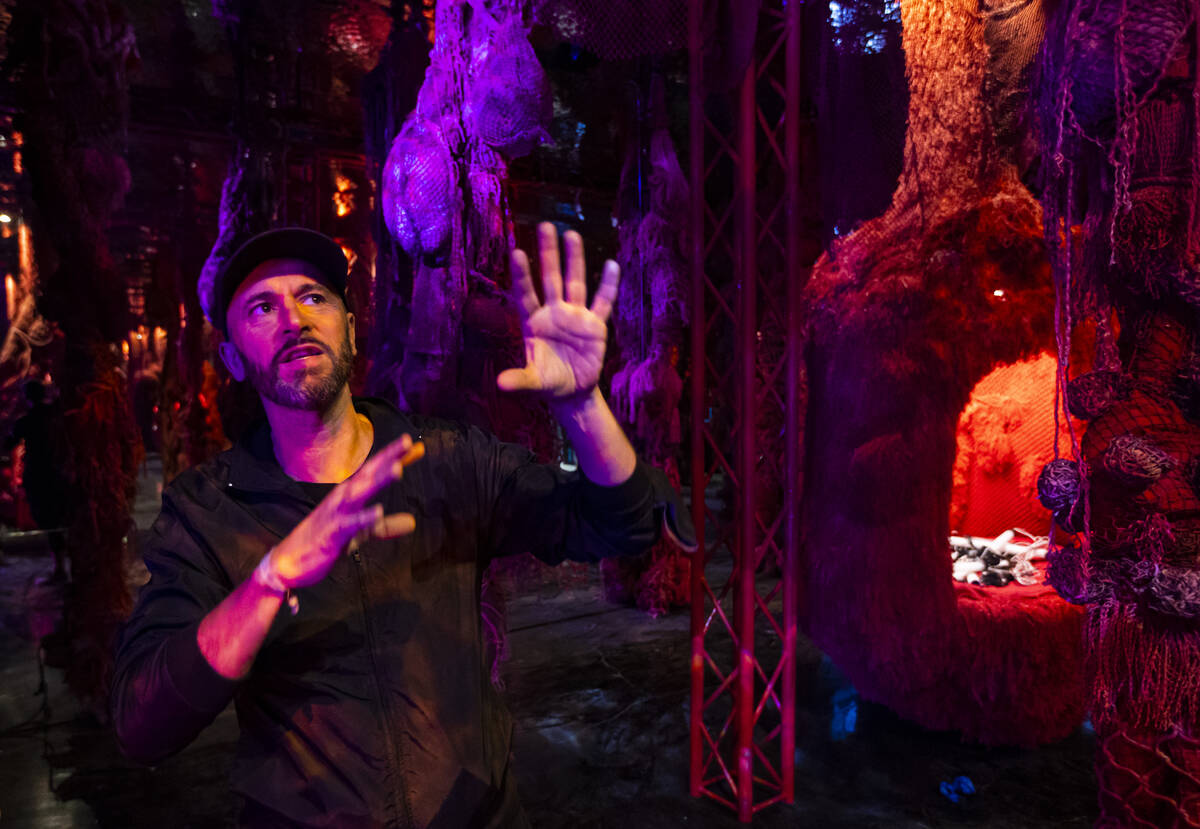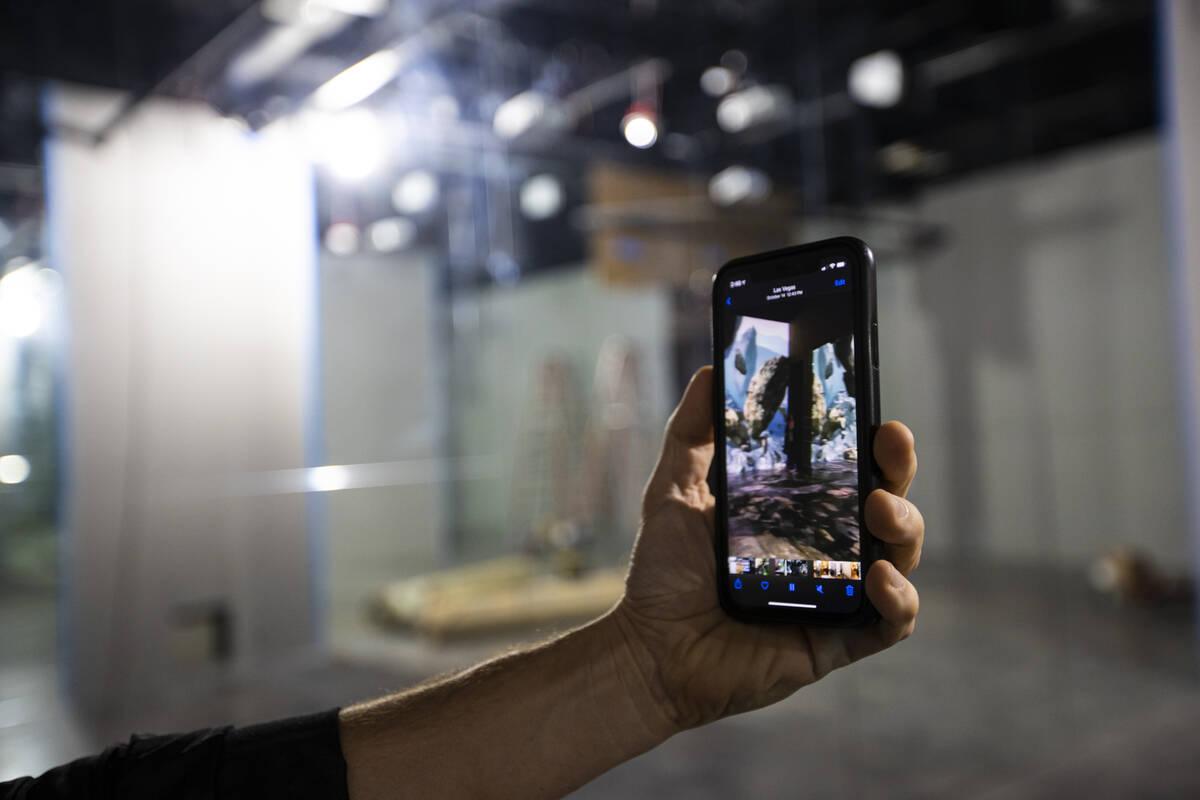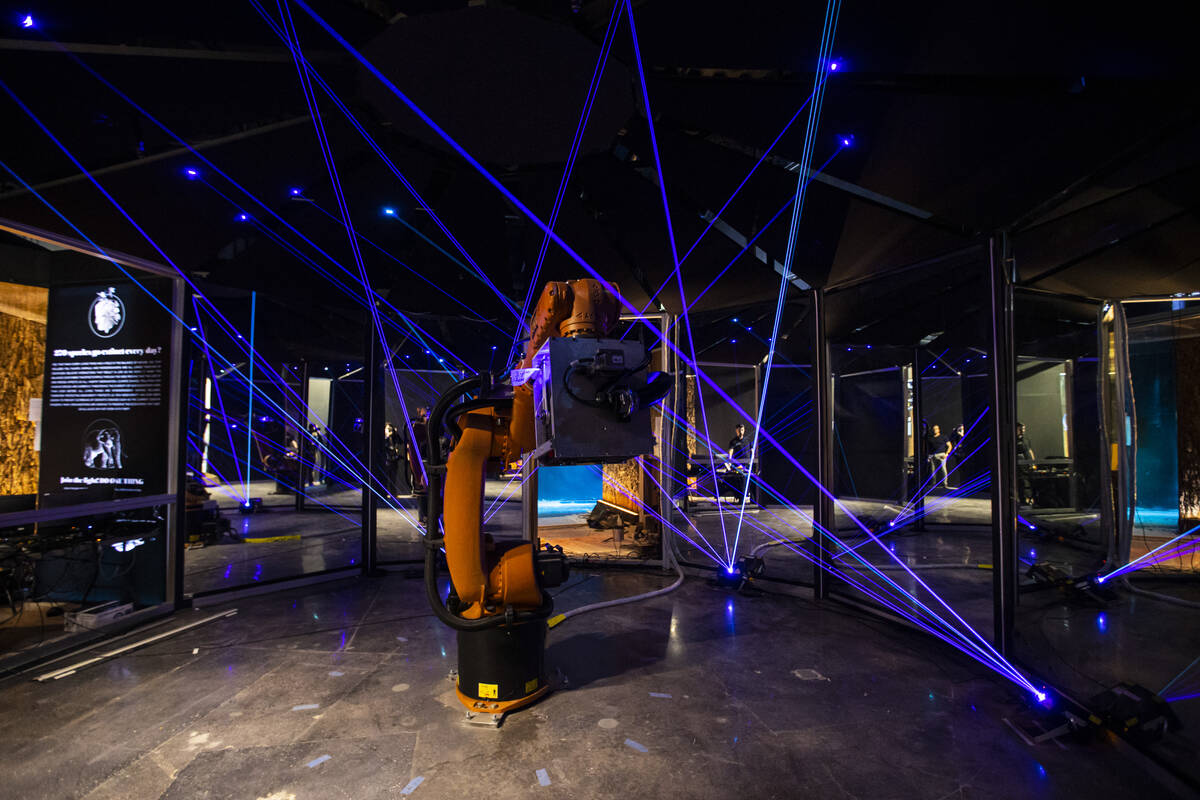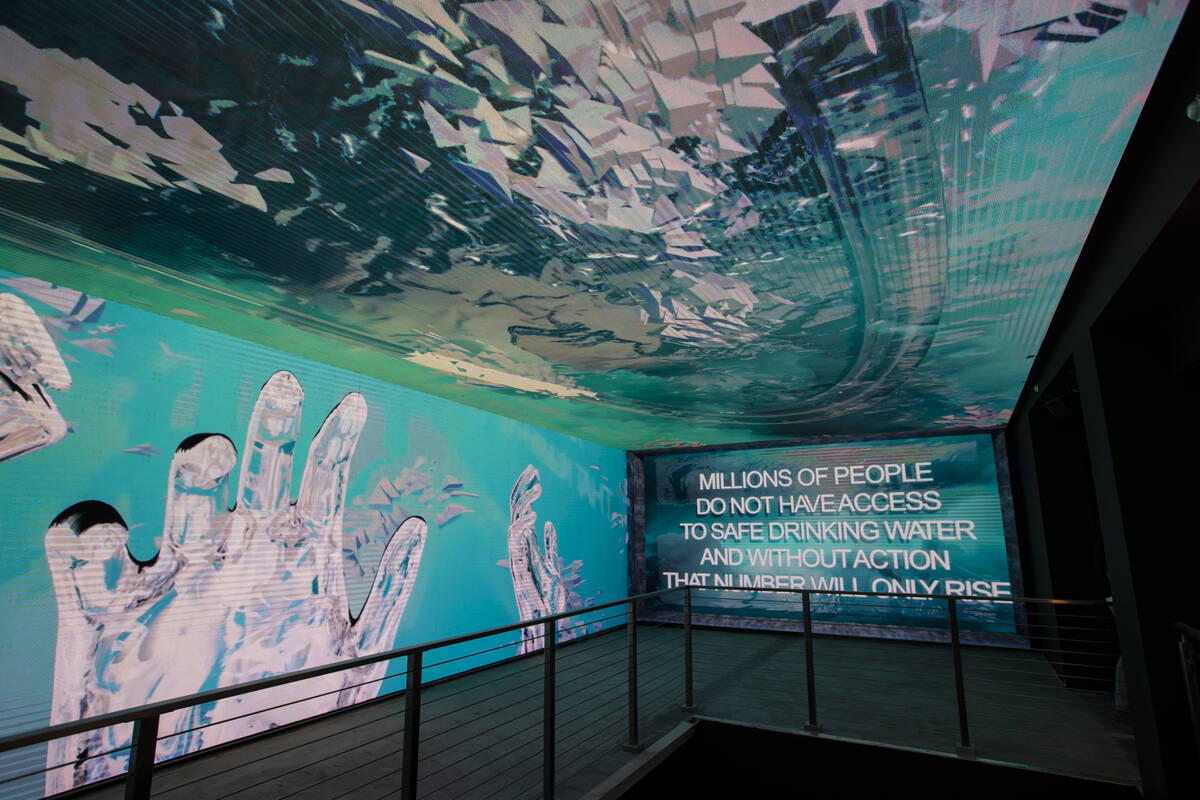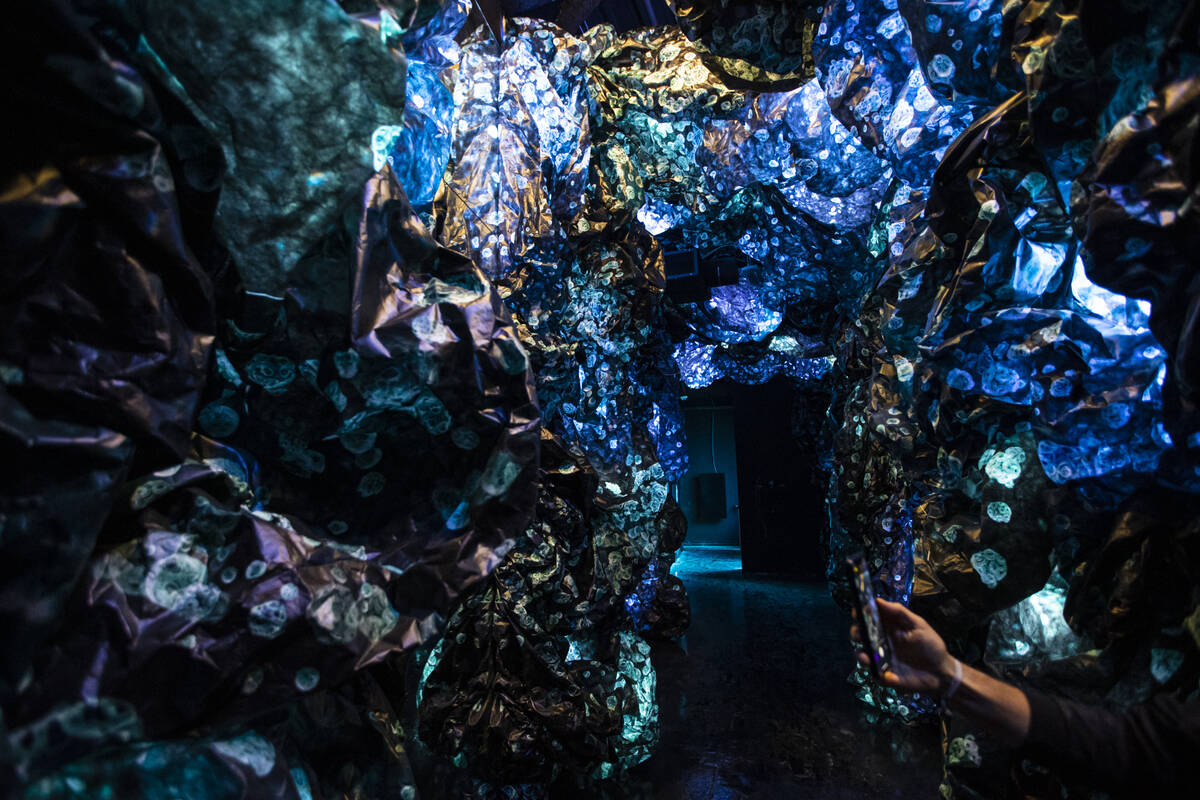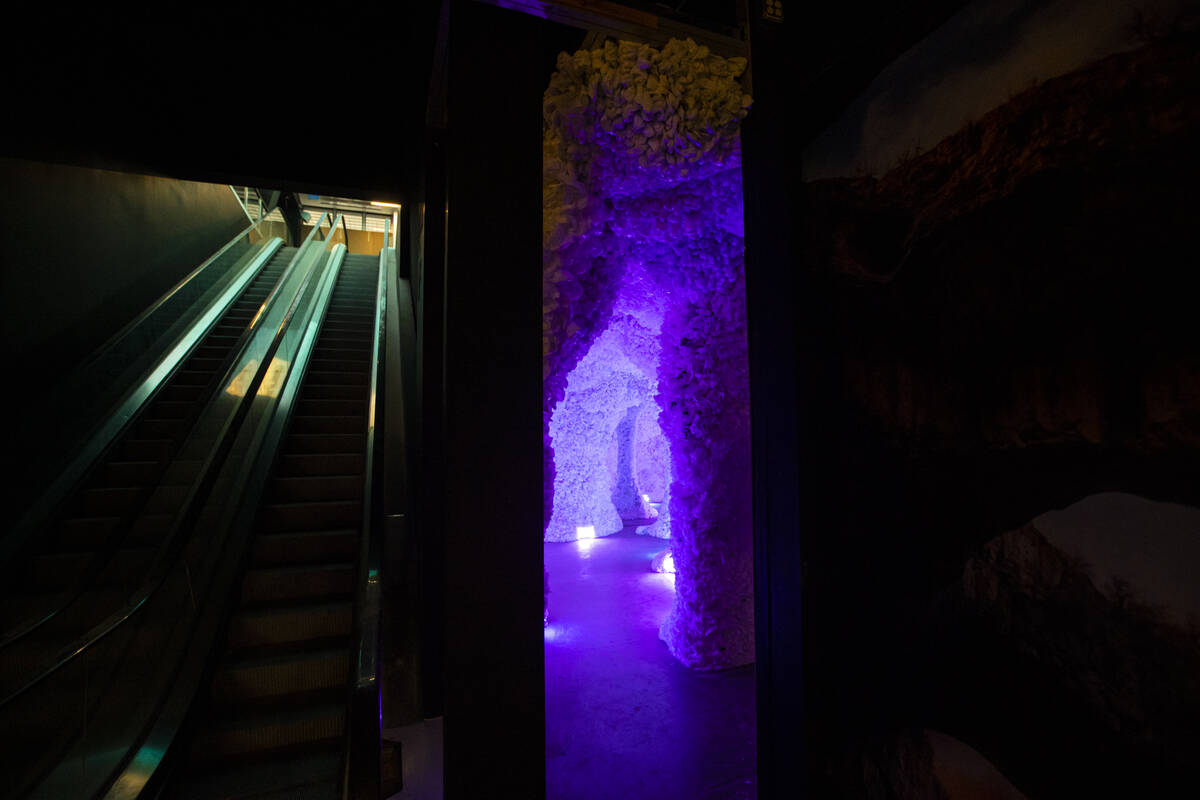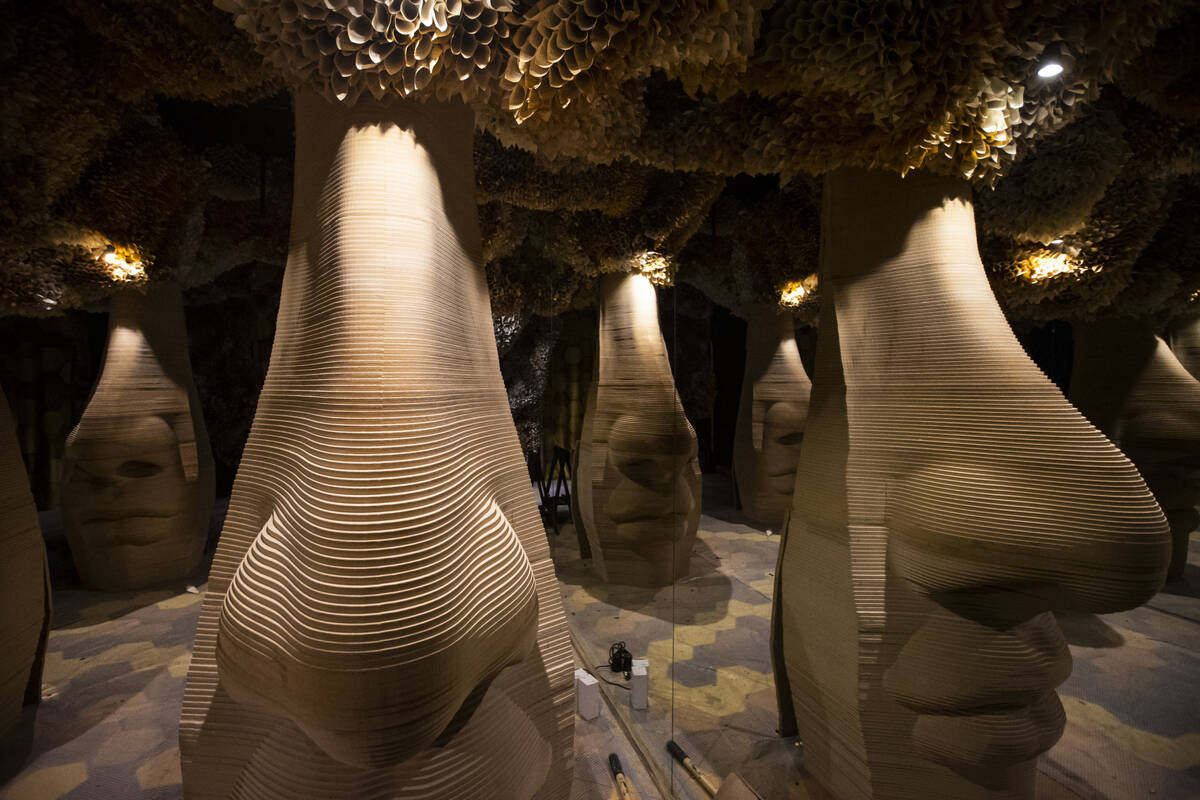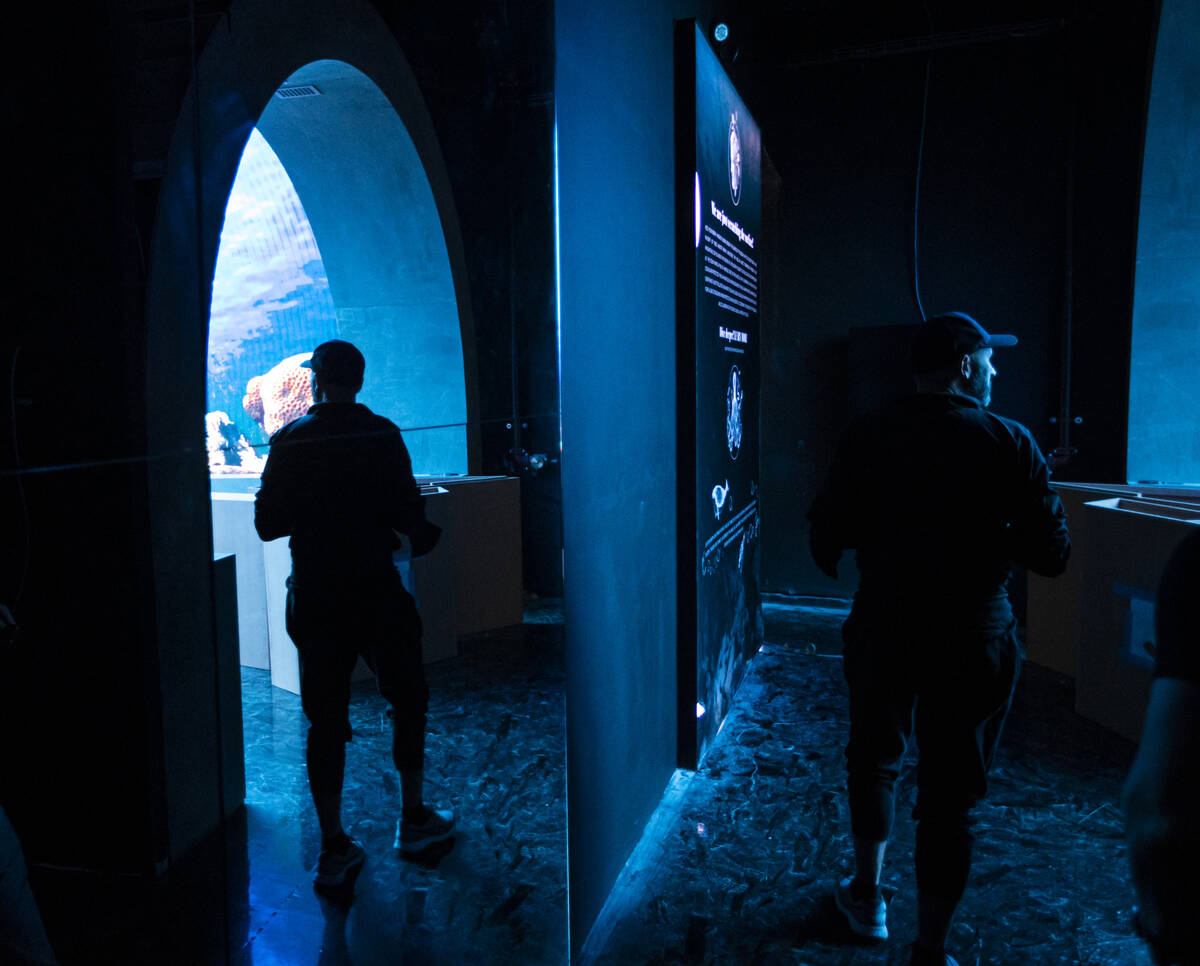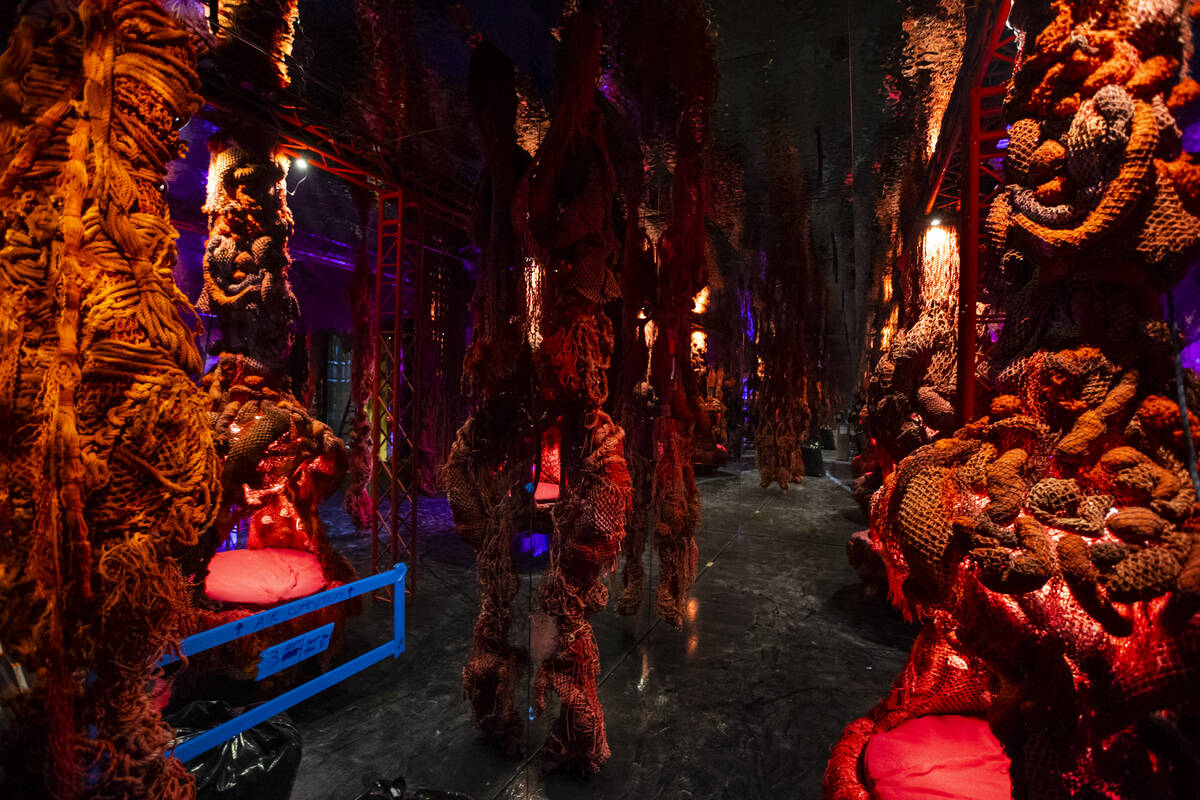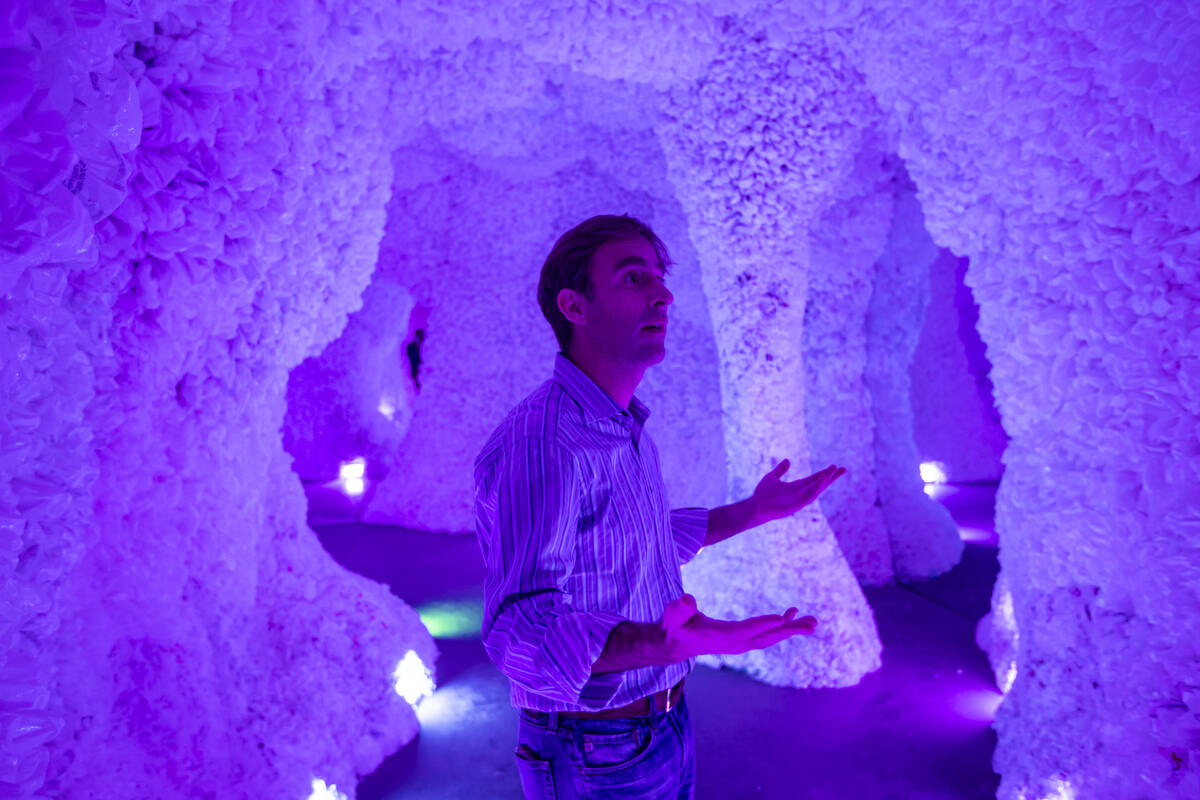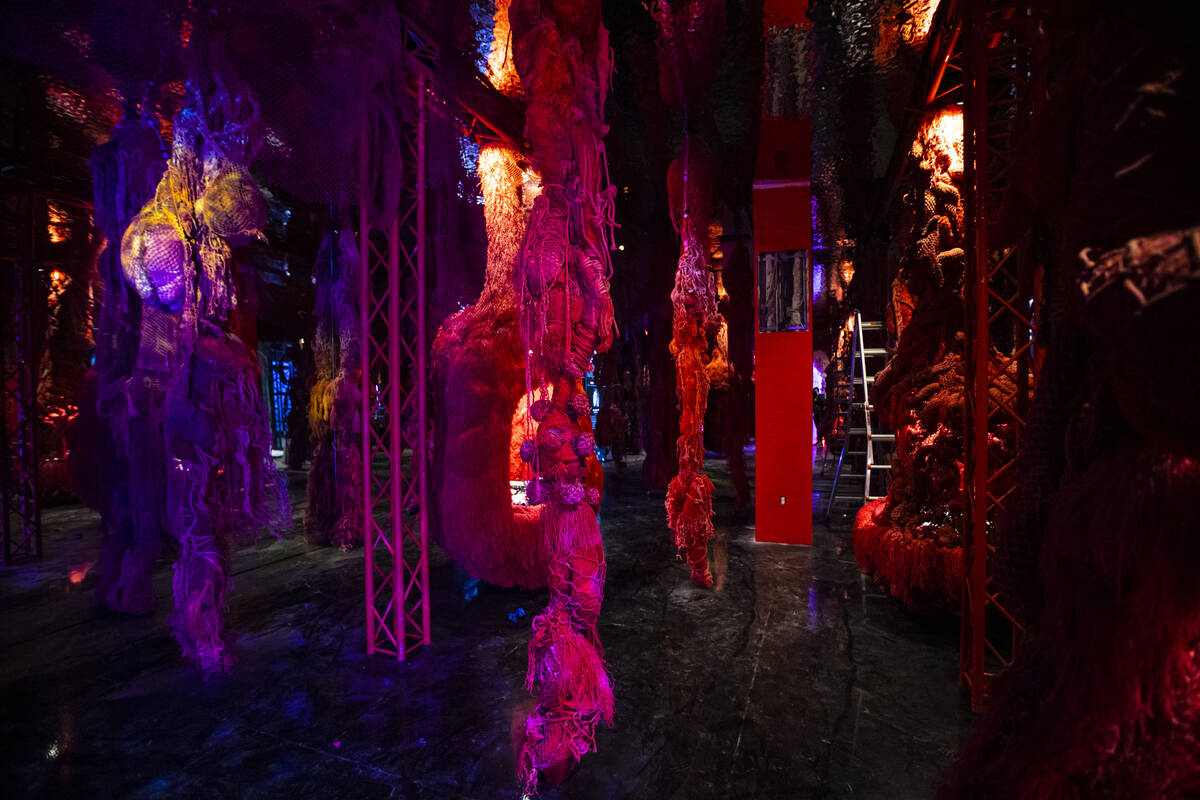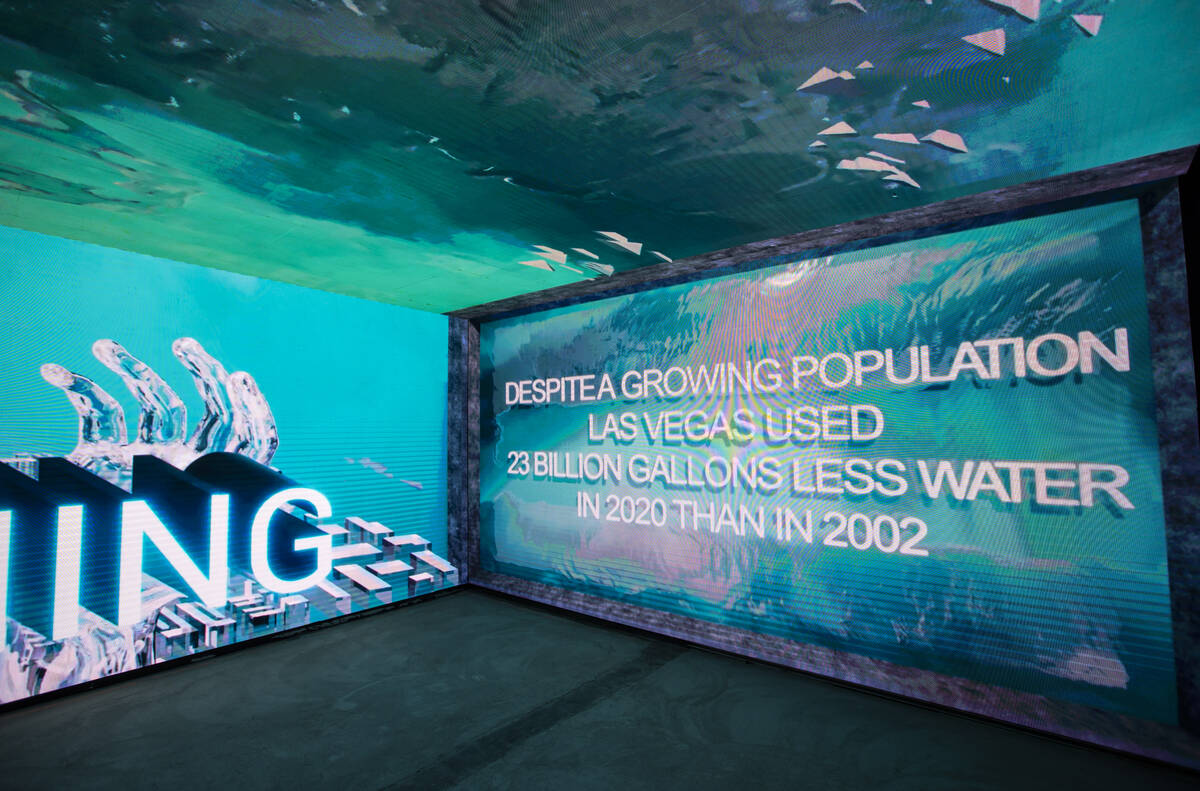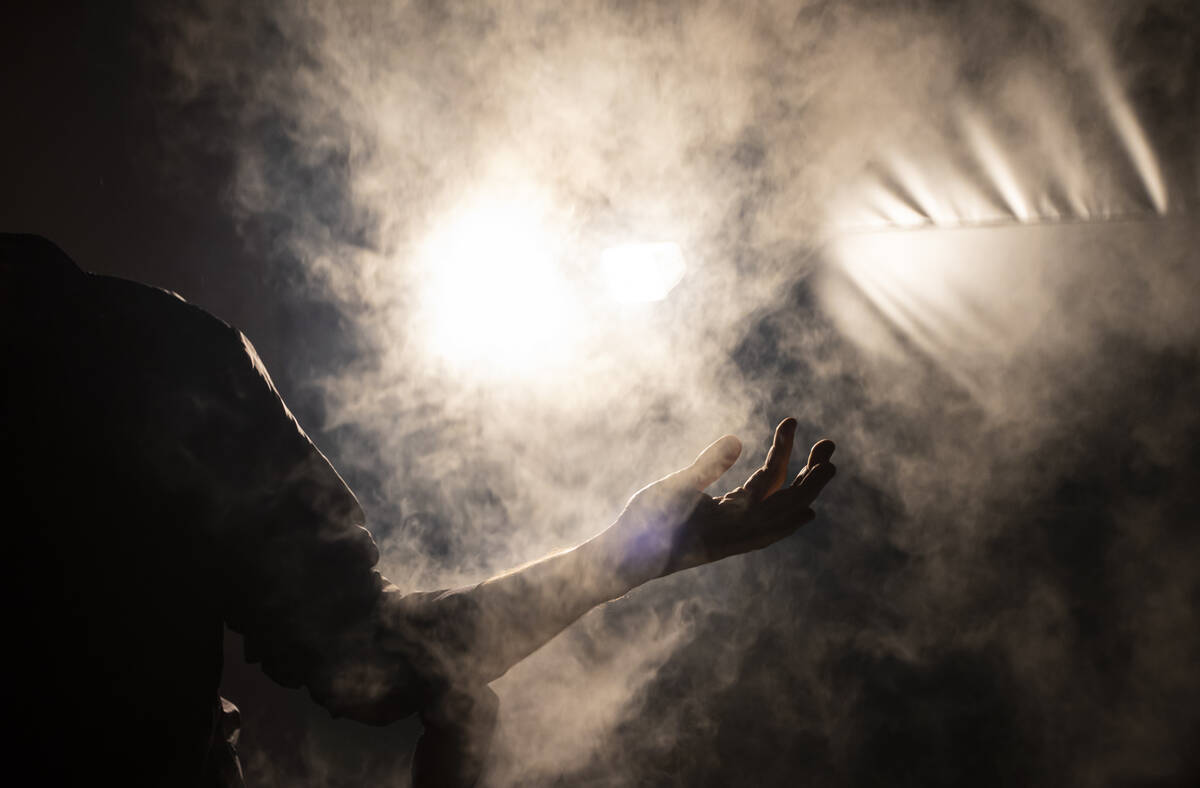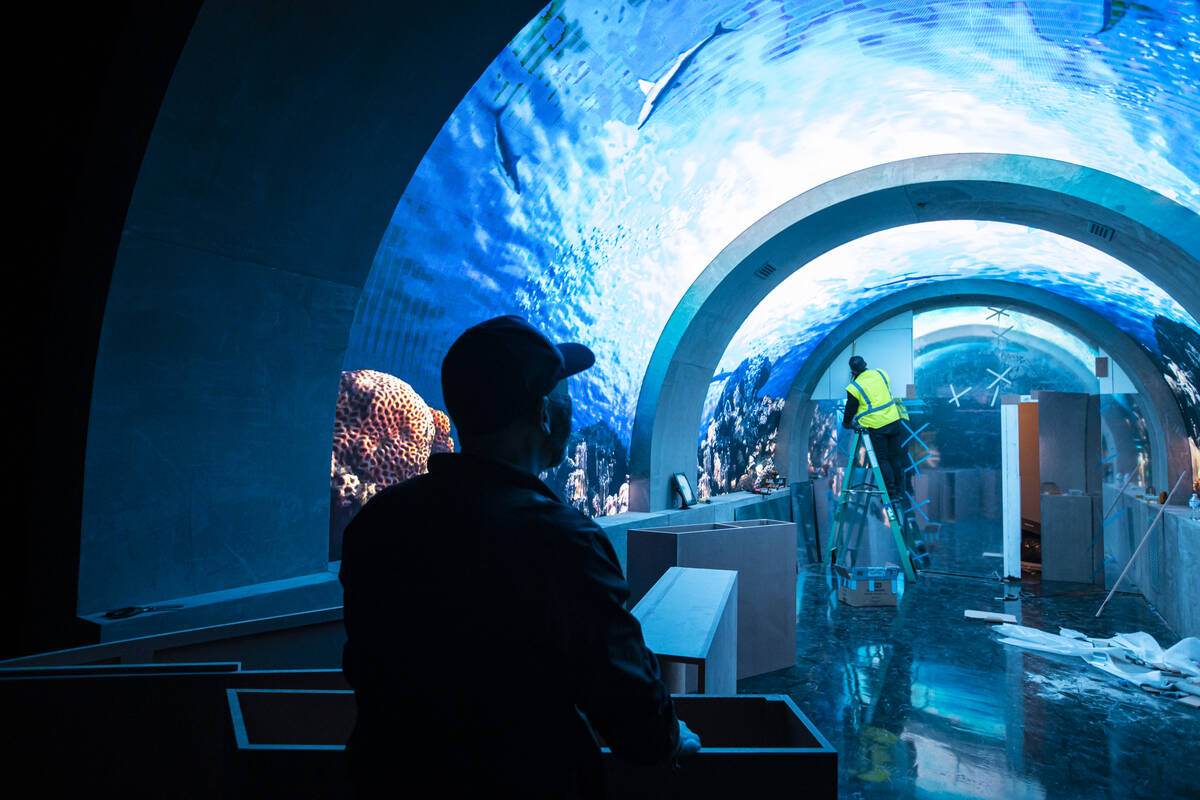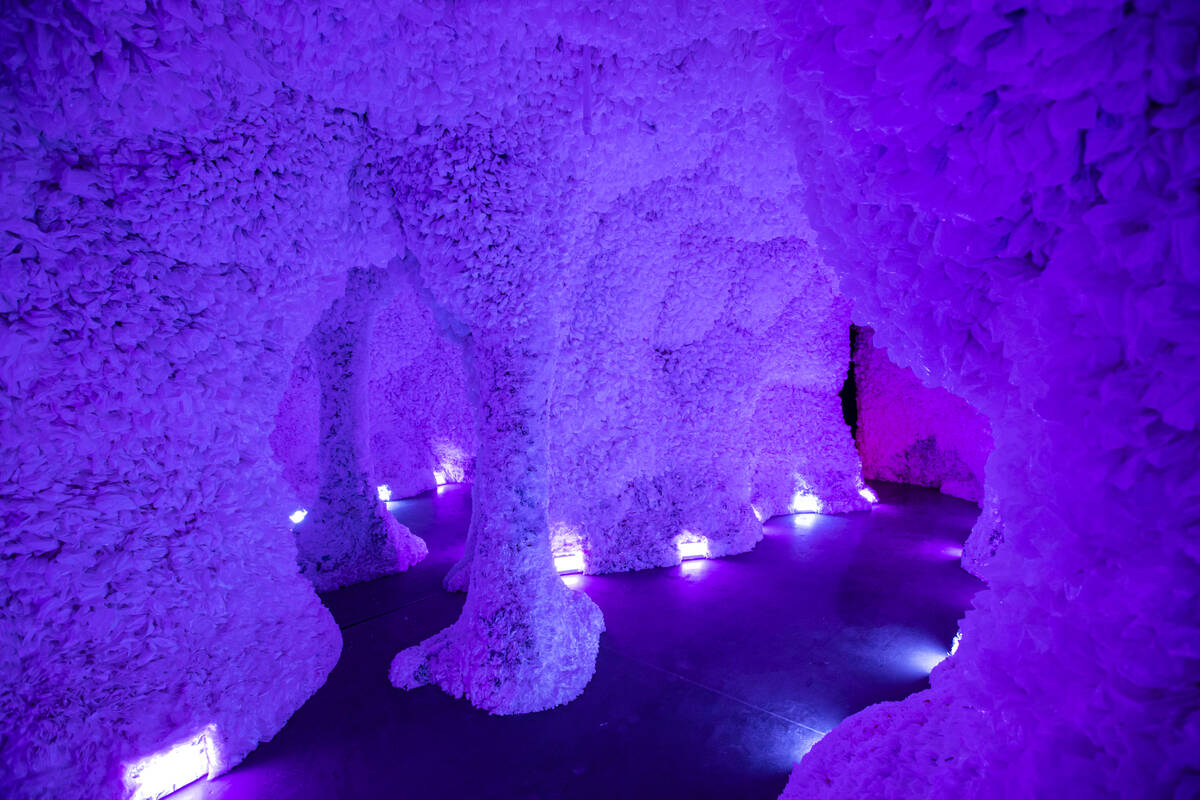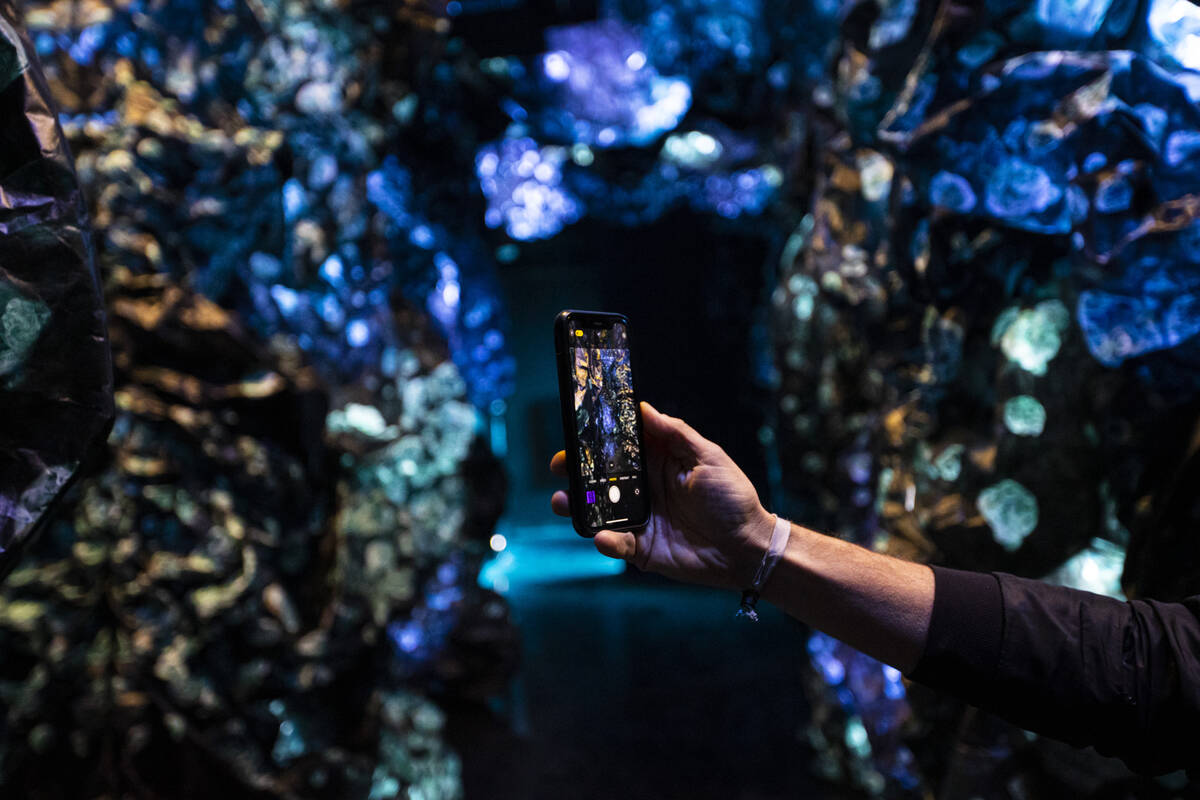Arcadia Earth set to debut on the Strip
It’s trivia time in the Rainbow Cave.
Walking through here, it feels like we’ve entered some luminous, underground dwelling, flush with art installation flourishes in place of stalactites, or maybe ventured into the maw of a giant whale — Jonah style — whose lungs are lined with light bulbs. Take a closer look at those walls, though.
“These are 66,000 plastic bags,” Valentino Vettori notes of what’s lining the room all around him, “which is the amount of plastic bags that we use every …”
He turns to the reporter at his side to fill in the blank.
“Minute?” comes the guess.
Swing and a miss there, guy.
“A third of a second,” Vettori says. “It’s insane, right? So what is the solution?”
He doesn’t wait for another wrong answer from a journalist. “The solution is a sustainable alternative to plastic,” Vettori explains, before offering a quick tutorial on PHA biodegradable plastics. “There are new technologies,” he notes. “I feel our mission is to learn about these things.”
Mission accomplished on a Tuesday afternoon on the Las Vegas Strip near the M&M Store.
Vettori is leading a tour of his newest creation: Arcadia Earth, an immersive, 15-room, 17,000-square-foot playground of the senses using 3D art, robotics, pungent scent technology — is that a rainstorm I smell? Yes, it is — augmented and virtual reality, pixelated sharks, painted-glass forests and plenty more high-tech set pieces intended to promote environmental awareness.
We know what you’re thinking right about now: There’d better be lasers. (Of course there are lasers.)
It’s all a highly Instagrammable mix of science and selfies intended to educate and entertain at once, to warn about climate change without resorting to the kind of finger-wagging that makes you feel ashamed for ordering a cheeseburger afterward. (Yes, there is an exhibit here called “Eat Less Meat” with dangling cattle carcasses made of fabric, but the message is to eat a little less meat, not no meat, so maybe just have a salad in place of a Big Mac tomorrow, OK?)
“Each room we inspire you with something,” Vettori says, clad head to toe in black, accent recalling his native Italy. “We inform with a nice story, and then we ask you, ‘Do you want to do something about it?’ ”
Make a change for climate change
He gestures to the fabric bracelet on his wrist. Vettori hasn’t taken it off in four years. Says he never will. It’s a promise he made, a reminder of a decision to act.
Flashback to the Summit LA conference in 2017.
Vettori, who has a background in the fashion and trade show industries, was there to create an installation piece on the future of retail.
Afterward, he attended talks by some of the celebrity speakers there, including Elon Musk and Jeff Bezos, both of whom talked of going to space, expending a massive amount of resources to escape Earth.
And then he caught a session by Paul Hawken, founder of Project Drawdown, a nonprofit dedicated to researching how global warming can be reversed, and author of “Drawdown,” a book that enumerates 100 ways for people to achieve that end.
The rooms were packed for Musk and Bezos. Hardly anyone was there for Hawken.
Vettori wanted to change that. “I went to Paul and I made a vow. I said, ‘Paul, I will never cut off the bracelet,’ ” Vettori recounts. “Because I’m a storyteller, maybe I should change my value proposition in life, and instead of telling stories for the fashion industry, I could help raise awareness of climate change.”
Vettori then convened a meeting with his production team. The question they sought to answer: Why were so few people there to hear Hawken speak about something that they felt was so important?
“We realized that every time people talk about climate change, it’s in a very negative way: ‘We’re gonna die,’ ” Vettori says. “And the second topic was about how we don’t ever empower the individuals, we don’t tell people what they can do, it’s always about ‘the science community will figure it out.’
“People don’t connect with something they don’t feel,” he continues. “That was the meaning of Arcadia. I wanted to do something that is inspiring. So, instead of being negative, be amazing — and actionable. Instead of saying, ‘This is what the problem is,’ it’s ‘You can do something about it.’ ”
A father’s pledge
We have entered a honeycomb of abandoned literature.
Midway through Arcadia Earth comes a room designed to look like a walk-in beehive constructed from the pages of discarded library books.
As with every exhibit here, each opens with a digital screen that details a specific environmental issue, an artist’s statement about the work they created and a QR code that can be scanned to learn more about the issue in question — in this case, the reduction of the world’s bee population — as well as eco-friendly alternatives to products like, say, sunscreen, which can damage coral reefs. (Some of those items may then be available in the Arcadia Earth retail area.)
In developing Arcadia Earth, Vettori says that he consulted with organizations in the scientific community like Oceanic Global and the World Wildlife Federation to ensure that all information provided here was accurate.
Vettori is a geyser of said information on this day. “Do you know how much plastic we eat?” he asks, speaking of tiny micro plastics that can infiltrate the food supply chain. “One credit card a week.”
“Do you know how much water we need to create a pound of burger? ” he later queries. “Fourteen-thousand bottles of water — to create five burgers. It’s so unsustainable.”
He leads the way through a red-hued passageway filled with fishermen’s nets dangling from the ceiling that were acquired from the docks of Maine, warning of the perils of overfishing. Nearby, the pulsating blue, diatom-adorned walls seem to breathe in a room about where oxygen comes from — 70 percent is derived from the ocean.
The Vegas Arcadia Earth location follows a pop-up version in New York City, which debuted in 2018, self-financed by Vettori.
“I leveraged my home and everything,” he says.
Vettori was motivated to expand to Las Vegas in part by the city’s environmental track record, citing its water and food recycling efforts and the large solar panel fields nearby.
“When people ask me, ‘Why are you going to Vegas?’ I said, ‘Vegas has a lot of real good environmental efforts,’ ” he explains. “ ‘We could be there to make an even greater difference.’ ”
Arcadia Earth is set to open Dec. 23, with tickets going on sale Wednesday. Vettori says that it will be considerably more elaborate than its predecessor.
“This is by far more sophisticated than New York,” he explains. “It’s a big step up.”
There’s a personal dimension to it all for Vettori, a father of two. In a way, this all comes down to a dad and his two daughters.
“I feel like if I was a good father, 20 years ago, maybe I would have thought, ‘I’m going to give them a good education.’ That was the mission,” he says. “And then in the last several years, I start to realize, if I’m a good father, I truly should try to give them a good planet.
“There are options; we do have options,” he elaborates. “People can make a difference, if they know what to choose.”
Contact Jason Bracelin at jbracelin@reviewjournal.com or 702-383-0476. Follow @jbracelin76 on Instagram



